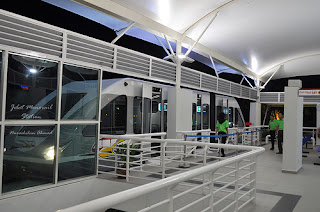In 1511,Alfonso D’ Albuquerque took the city for the Portuguese. In 1641 the city passed into Dutch hands after a siege lasting 8 months. In 1795, the French occupied Holland, so the British, allies of the Dutch, temporarily took over the administration of the Dutch colonies. In 1824, Melaka was ceded to the British in exchange for the Sumatran port of Bencoolen, (Bengkulu today). From 1826 onwards Melaka was ruled by the English East-India Company together with Singapore and Penang under the Straits Settlement administration.
Over the years, the cross cultural assimilation and inter-marriages have produced the unique communities of the Straits Chinese (Baba-Nyonya or Peranakan), Chitty, Portuguese and the Eurasian. Besides the Malay, Chinese and the Indian, these are the minority of Malaccan multi-racial, multi-cultural and multi-ethnic way of life. All the ethnic races here in the state, practice and carry out their religious
beliefs in peace and harmony, respecting each other’s taboos.
The Portuguese intermarried with the local population and are now collectively
referred to as Portuguese-Eurasian or 'Kristang'. These ethnic group are mixed
Portuguese and Malay and for some possibly Indian or Chinese ancestry, which
arose during the Portuguese colonial period (16th to 17th
century). The Portuguese influence permeated to encompass their distinctive influence into architecture, culture, traditions, food, arts, music and language.
The decendants of the Portuguese still speak Creole Portuguese (Papia Kristang) or Cristang (Cristao) and observe many of the Portuguese customs, traditions and practice. There are Portuguese Settlement in Malacca located in Ujong Pasir. Most of the them are fisherman for many generations.
Although the Dutch colony stay longer than the Portuguese in Malacca and many of the building remains are Dutch, there is no specific Dutch Village here like the Portuguese Village. the Dutch descendants are exist in this country and they are consider the minority within the minority. They are scattered all over the country and not only centered in Malacca. They maybe the smallest group of Eurasians in Malaysia but the they are descendants of the VOC or Dutch East India Company pioneers who ruled Malacca in 1641 for 16 decades.
Baba Nyonya are Malacca's strait-born Chinese or 'Peranakan' whose lineage traces back to centuries ago when the Chinese emigrated from China and inter-married with the local women. This is a very unique culture in Malacca where the Chinese culture is assimilated into Malay customs. They have several similarities with Malay culture in terms of dress, food and language. However, most of them are not Muslim even though they practice Malay traditions.

 The Chittys ancestor are traders who arrived in Malacca in the 14th century and are also known as Chitty Melaka or Malacca Straits-born Hindus or Indian Peranakan. The heterogeneous Chitty community was born of a long history of inter-marriage between women from the local Malay, Javanese, Chinese and Batak communities and Indian traders.
The Chittys ancestor are traders who arrived in Malacca in the 14th century and are also known as Chitty Melaka or Malacca Straits-born Hindus or Indian Peranakan. The heterogeneous Chitty community was born of a long history of inter-marriage between women from the local Malay, Javanese, Chinese and Batak communities and Indian traders. Like the Baba-Nyonya the Chitty are also assimilated into Malay customs in terms of dress food and language.They have a unique culture that differentiates them between other races such as Malays, Chinese, Indian and others. Their settlement situated at Gajah Berang in Malacca.











